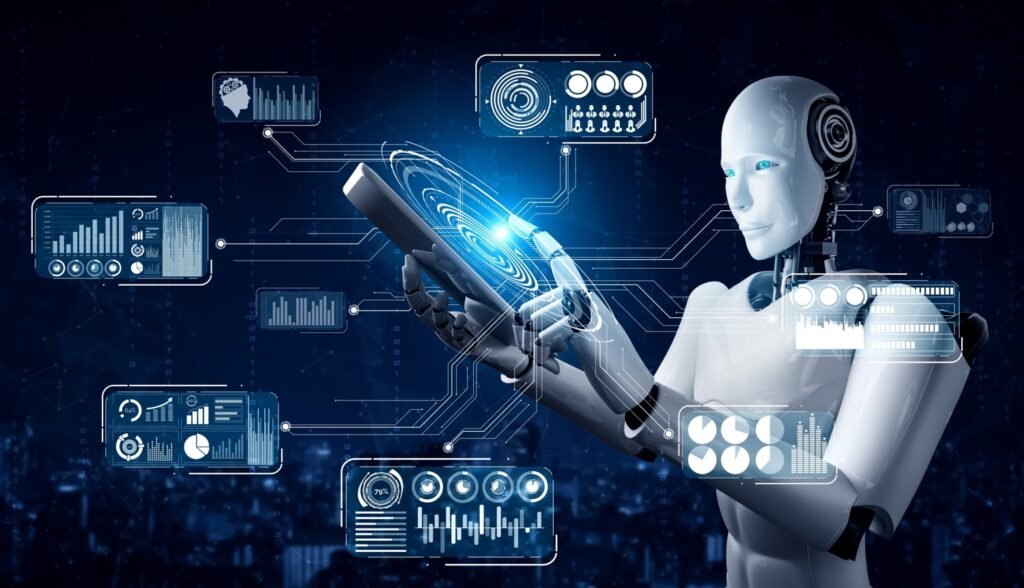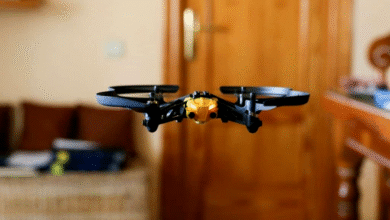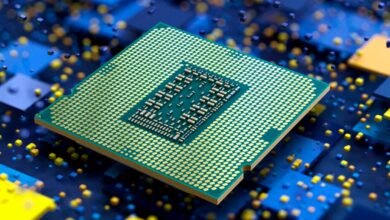
Artificial Intelligence (AI) has already revolutionized the world and is still evolving at an unprecedented rate. As we approach 2023, we can expect to see some groundbreaking changes in AI technology. In this article, we will take a closer look at the 15 biggest AI trends that will shape our future.
Read More: Metaverse Trends 2023: Exploring the Future of Virtual Worlds
Introduction to AI
Artificial Intelligence is the branch of computer science that deals with creating machines that can perform tasks that usually require human intelligence. AI has become an integral part of our lives, and it is continuously improving. The year 2023 is expected to witness some of the most significant advancements in AI technology.
AI in Healthcare
AI technology is transforming healthcare. In 2023, we can expect to see significant advancements in AI-powered diagnosis and treatment. AI algorithms will be able to identify patterns in medical imaging that humans might not detect. Additionally, AI-powered robots will assist in performing surgeries.
AI in Education
AI technology will transform the education sector by providing personalized learning experiences. AI-powered chatbots will be used to answer students’ questions, making education more accessible and efficient. Furthermore, AI algorithms will be used to analyze student data to develop personalized teaching strategies.
AI in Agriculture
AI technology will improve the agriculture sector by making farming more efficient and sustainable. AI-powered robots will be used to perform tasks such as planting, harvesting, and monitoring crops. Additionally, AI algorithms will be used to analyze soil and weather data to optimize crop yields.
AI in Transportation
AI technology will revolutionize the transportation sector by making vehicles more autonomous and efficient. Self-driving cars will become more prevalent, making transportation safer and reducing the number of accidents caused by human error. Furthermore, AI algorithms will be used to optimize traffic flow and reduce congestion.
AI in Finance
AI technology will transform the finance sector by improving fraud detection and prevention. AI algorithms will be used to analyze financial data to detect fraudulent activity. Additionally, AI-powered chatbots will be used to provide customer service, making it more efficient and accessible.
AI in Cybersecurity
AI technology will improve cybersecurity by identifying and preventing cyber attacks. AI algorithms will be used to analyze network data to identify potential threats. Additionally, AI-powered chatbots will be used to provide customer service, making it more efficient and accessible.
Natural Language Processing (NLP)
Natural Language Processing (NLP) is the branch of AI that deals with understanding human language. In 2023, we can expect to see significant advancements in NLP technology. AI algorithms will be able to analyze human language more accurately, making it easier to develop chatbots and virtual assistants that can understand human language more efficiently.
Computer Vision
Computer Vision is the branch of AI that deals with enabling machines to interpret and understand visual data from the world. In 2023, we can expect to see significant advancements in computer vision technology. AI algorithms will be able to identify objects in images more accurately, making it easier to develop applications that can recognize objects and people.
AI and The Internet of Things (IoT)
AI technology and the Internet of Things (IoT) will work hand in hand in 2023 to enable smart homes and cities. AI algorithms will be used to analyze data from IoT devices to optimize energy consumption, traffic flow, and other city functions. Additionally, AI-powered chatbots will be used to provide customer service for IoT devices, making them more efficient and accessible.
AI and Robotics

AI technology and robotics will become more intertwined in 2023, with robots becoming more intelligent and autonomous. AI algorithms will be used to improve the decision-making abilities of robots, making them more efficient and reliable. Additionally, AI-powered robots will be able to perform tasks that require more advanced skills, such as surgical procedures.
AI Augmented Reality (AR) and Virtual Reality (VR)
AI technology will enhance the capabilities of AR and VR in 2023. AI algorithms will be used to improve the accuracy of AR and VR applications, making them more immersive and realistic. Additionally, AI-powered chatbots will be used to provide customer service for AR and VR applications, making them more efficient and accessible.
Quantum Computing
Quantum computing is a new computing paradigm that uses quantum bits (qubits) instead of classical bits. In 2023, we can expect to see significant advancements in quantum computing technology. AI algorithms will be used to develop quantum algorithms that can solve problems that classical computers cannot.
Edge Computing
Edge computing is the process of bringing computing power closer to where it is needed, reducing the latency and bandwidth requirements of cloud computing. In 2023, we can expect significant edge computing technology advancements. AI algorithms will be used to optimize the performance of edge computing devices, making them more efficient and reliable.
Responsible AI
As AI technology continues to evolve, there is a growing need to ensure that it is developed and used responsibly. In 2023, we can expect to see more focus on responsible AI, including the development of ethical guidelines and the integration of ethical considerations into the design of AI systems.
Read More: 5 Biggest Education and Training Technology Trends in 2023
FAQs
- What is AI, and how does it work?
AI stands for artificial intelligence, which refers to the ability of machines to perform tasks that typically require human intelligence, such as learning, reasoning, and problem-solving. AI uses algorithms to analyze data and make decisions based on that analysis. Machine learning is a subset of AI that involves training algorithms on large datasets to improve their performance.
- What are the benefits of AI technology?
AI technology has many benefits, including increased efficiency and productivity, improved accuracy and reliability, and the ability to perform tasks that are too dangerous or difficult for humans. AI also has the potential to revolutionize many industries, from healthcare and finance to transportation and entertainment.
- What are some examples of AI applications in healthcare?
AI has many applications in healthcare, including diagnosing diseases, developing treatment plans, and predicting patient outcomes. AI algorithms can analyze medical images, such as MRI scans, to identify abnormalities and help doctors make more accurate diagnoses. AI can also be used to analyze patient data and develop personalized treatment plans.
- How will AI technology impact the job market?
AI technology has the potential to both create and eliminate jobs. While AI can automate many tasks, it also has the potential to create new jobs in areas such as data science and AI development. However, it is important to ensure that workers are adequately trained and prepared for the changing job market.
- What are some ethical considerations when developing AI systems?
Some ethical considerations when developing AI systems include ensuring that the technology is used in ways that are fair, transparent, and unbiased. It is also important to consider the potential impact of AI on society, including issues such as privacy, security, and job displacement. Additionally, AI developers should consider the potential long-term consequences of their technology and take steps to mitigate any negative effects.
Conclusion
The year 2023 will witness some of the most significant advancements in AI technology. From healthcare and education to transportation and finance, AI will transform every aspect of our lives. As we embrace these advancements, it is essential to ensure that AI technology is developed and used responsibly, with a focus on ethics and human well-being.








5 Comments